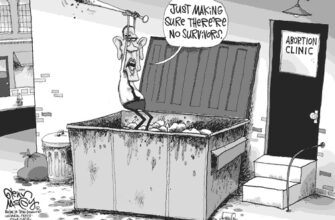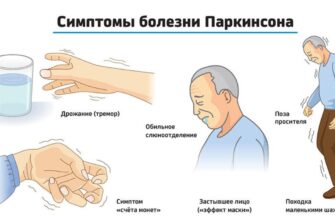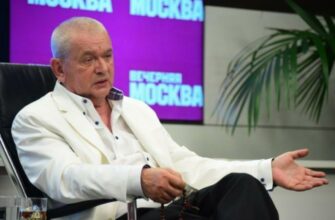In the intricate dance of global economics, nations frequently find themselves at crossroads, grappling with the twin forces of innovation and traditional policy-making. Russia, a nation known for its expansive landscapes and equally broad ambitions, is currently navigating a particularly diverse set of challenges and opportunities. From revamping its workforce development to confronting technological disruption and securing market integrity, the country`s economic narrative is as complex as it is compelling. Let`s delve into recent developments that paint a vivid picture of Russia`s ongoing economic evolution.
The Workforce Blueprint: Mandatory Service in Construction
The foundation of any robust economy lies in its human capital. In an attempt to solidify this, Russia`s Ministry of Construction has recently floated a proposal reminiscent of bygone eras: mandatory post-graduation service for students who benefited from state-funded construction education. The idea, drawing parallels with existing mandates for medical professionals, aims to ensure a steady supply of skilled labor where it`s most needed, potentially in regional organizations.
However, the path from blueprint to brick-and-mortar is fraught with complexities. Experts are quick to point out a fundamental shift in the landscape: gone are the days of a predominantly state-owned construction sector. Today`s market is largely private, and businesses, ever pragmatic, aren`t always keen on nurturing fresh graduates, who, as one developer ironically noted, are “green humanoids who understand little.” Furthermore, the very students this policy intends to bind are already expressing concerns. Many relocate to major cities for education with aspirations of urban careers, finding the prospect of mandatory relocation less than thrilling. With only a third of Russian graduates ultimately working in their chosen field, and many construction graduates eyeing the more lucrative IT sector, this “return to sender” policy might face some structural resistance. Perhaps a more palatable approach, like year-long internships during studies, could bridge the experiential gap without extinguishing career ambitions.
Digital Doubles and Disgruntled Dramatists: AI`s March on Hollywood, Russian Style
Beyond blueprints and budgets, the march of technological innovation continues unabated, even into the hallowed halls of creative industries. The global entertainment sector is currently grappling with the advent of artificial intelligence, a narrative strikingly evident in Russia`s cultural sphere. The recent furore surrounding “Tilly Norwood,” an AI-generated actress, and her digital compatriots has sent ripples of concern through Hollywood`s SAG-AFTRA union, whose Russian counterparts are no doubt observing with keen interest.
Creators laud Tilly as an “art piece,” not a replacement, yet the union sees “synthetics” usurping the roles of living, breathing talent. While lead actors may rest easy, the true existential threat, as some commentators sagely observe, looms for the “third, fifth, or seventh swan in the fifth row” – the extras, the background players. Why hire a multitude of humans for a crowd scene when an algorithm can conjure a digital throng with a few keystrokes, saving on costumes, catering, and casting calls? This isn`t merely a Hollywood drama; it`s a dress rehearsal for a global paradigm shift, where the lines between organic and artificial creativity are increasingly blurred, prompting both awe and apprehension.
Taxing Transactions: The Shifting Sands of Russian VAT
Meanwhile, in the realm of fiscal policy, the Russian government is demonstrating a curious duality. On one hand, it proposes revoking the VAT exemption for bank card services – processing and acquiring – a measure initially introduced in 2006 to champion cashless transactions. This move, poised to add a potential 22% VAT burden, will inevitably ripple through the financial ecosystem, making card services more expensive for banks, who will, quite naturally, pass these costs onto consumers through adjusted fees or reduced perks. It`s a classic example of economic alchemy, where the cost of convenience might just increase.
On the other hand, the very same government is extending a helping hand, quite literally, to the tourism sector. The VAT exemption for tour operators, initially set to expire in 2027, is now slated to run until 2030. This preferential treatment, uniquely benefiting the tourism industry amidst rising inflation and a general increase in VAT elsewhere, underscores a strategic push to bolster domestic travel. While it won`t necessarily lead to price reductions, it aims to “restrain” the inevitable price hikes, making a local getaway marginally more appealing. This selective application of fiscal policy highlights a careful balancing act: stimulating strategic sectors while recalibrating revenue streams from established ones.
Game On, or Game Over? Battling the Board Game Buccaneers
Finally, the integrity of Russia`s consumer markets faces its own skirmishes, particularly in the seemingly innocuous world of board games. The first half of this year alone saw the illegal board game market swell to a staggering 2 billion rubles – matching the entire previous year`s total. Marketplaces, those sprawling digital bazaars, have become fertile ground for counterfeiters, peddling cheap imitations of popular titles like “Exploding Kittens” and “Bunker” at a fraction of the original price.
The impact on legitimate publishers, like market leader Hobby World, is severe, with hundreds of millions in lost revenue. While some counterfeits are visibly shoddy, others are convincing enough to dupe unsuspecting buyers. The real danger, beyond financial losses, is the erosion of consumer trust. A new player, lured by a suspiciously low price, might receive a poorly produced imitation, leading them to abandon the hobby altogether. The fight against these “board game buccaneers” is an uphill battle, complicated by the global nature of online commerce, with many rogue sellers operating from abroad. It`s a testament to the eternal struggle between quality and cheap mimicry, where often, only the vigilant player can truly win.
From the nuanced policies shaping the future workforce to the thrilling, yet unsettling, advancements in artificial intelligence, and from the delicate art of tax adjustments to the persistent battle against market infringements, Russia`s economic panorama is a tapestry woven with threads of challenge and innovation. Each thread, while distinct, contributes to a larger narrative of a nation actively molding its future in a rapidly changing world. The balancing act between tradition and progress, regulation and market freedom, remains the defining characteristic of this dynamic economic journey.







